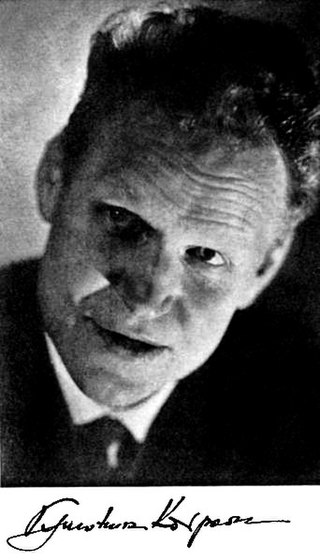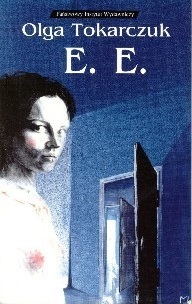
Jacek Maria Dehnel is a Polish poet, writer, translator and painter.

Olga Nawoja Tokarczuk is a Polish writer, activist, and public intellectual. She is one of the most critically acclaimed and successful authors of her generation in Poland. She was awarded the 2018 Nobel Prize in Literature as the first Polish female prose writer for "a narrative imagination that with encyclopedic passion represents the crossing of boundaries as a form of life". For her novel Flights, Tokarczuk was awarded the 2018 Man Booker International Prize. Her works include Primeval and Other Times, Drive Your Plow Over the Bones of the Dead, and The Books of Jacob.

Jerzy Pilch was a Polish writer, columnist, and journalist. He is the winner of the 2001 Nike Award for his novel Pod Mocnym Aniołem. Critics have compared Pilch's style to Witold Gombrowicz, Milan Kundera, or Bohumil Hrabal.

Andrzej Tadeusz Kijowski is a Polish aesthetician, theatre critic, literary critic, poet and publicist.

Wydawnictwo Literackie is a Kraków-based Polish publishing house, which has been referred to as one of Poland's "most respected".

Leszek Maria Engelking was a Polish poet, short story writer, novelist, translator, literary critic, essayist, Polish philologist, and literary academic, scholar, and lecturer.

Zofia Posmysz-Piasecka was a Polish journalist, novelist, and author. She was a resistance fighter in World War II and survived imprisonment at the Auschwitz and Ravensbrück concentration camps. Her autobiographical account of the Holocaust in occupied Poland, Passenger from Cabin 45, became the basis for her 1962 novel Passenger, subsequently translated into 15 languages. The original radio drama was adapted for an award-winning feature film, while the novel was adapted into an opera of the same name with music by Mieczysław Weinberg.

This bibliography of Stanisław Lem is a list of works about Stanisław Lem, a Polish science fiction writer and essayist.

Drive Your Plow Over the Bones of the Dead is a 2009 mystery novel by Olga Tokarczuk. Originally published in Polish by Wydawnictwo Literackie, it was later translated to English by Antonia Lloyd-Jones and published in 2018 by the British independent publisher Fitzcarraldo Editions. The book received a wider release in 2019 when it was published in the United States by Riverhead Books on 13 August 2019. A portion of the English translation was originally published in literary magazine Granta in 2017.

House of Day, House of Night is a novel by Olga Tokarczuk, published by Wydawnictwo Ruta in 1998.

Tymoteusz Karpowicz was a leading Polish language poet and playwright.

Blanka Lipińska is a Polish author best known for her erotic trilogy beginning with 365 Dni. The first and second novels were adapted into the 2020 and 2022 films for which she co-wrote the screenplay and in which she has a cameo.

The Books of Jacob is an epic historical novel by Olga Tokarczuk, published by Wydawnictwo Literackie in October 2014. It is Tokarczuk's ninth novel and is the product of extensive historical research, taking her seven years to write.

The 2018 Nobel Prize in Literature was awarded to the Polish writer Olga Tokarczuk "for a narrative imagination that with encyclopedic passion represents the crossing of boundaries as a form of life." The prize was announced the following year by the Swedish Academy on 10 October 2019. Tokarczuk is the fifth Nobel laureate in Literature from Poland writing in Polish, after the poet Wisława Szymborska in 1996, and Czesław Miłosz in 1980.
Antonia Lloyd-Jones is a British translator of Polish literature based in London. She is best known as the long-time translator of Olga Tokarczuk's works in English, including Drive Your Plow Over the Bones of the Dead which was shortlisted for the International Booker Prize in 2019. The former co-chair of the Translators Association in the United Kingdom from 2015 to 2017, she is also a mentor for the Emerging Translator Mentorship Programme in the National Centre for Writing and has mentored several early-career translators from Polish into English.

E.E. is a 1995 psychological novel by the Polish author Olga Tokarczuk. Set in Wrocław at the turn of the 20th century, it tells the story of a teenaged Erna Eltzer, who suddenly gains paranormal skills and is used as a medium. The novel draws from Carl Jung's doctoral dissertation On the Psychology and Pathology of So-Called Occult Phenomena.

Karol Maliszewski is a Polish poet, prose writer, literary critic and literary scholar. He is habilitated doctor – professor at the University of Wrocław.
W leju po bombie is a science fiction short story by Andrzej Sapkowski, published in 1993, belonging to the genres of military and political fiction, as well as so-called klerykal fiction and politpunk. In 1994, the story won the Janusz A. Zajdel Award.

The Empusium: A Health Resort Horror Story is a 2022 historical novel by Olga Tokarczuk. Originally published in Polish by Wydawnictwo Literackie, it was later translated to English by Antonia Lloyd-Jones and published in 2024 by Riverhead Books (US) and Fitzcarraldo Editions (UK). It was Tokarczuk's first new novel in eight years, and her first since winning the Nobel Prize in Literature.
















